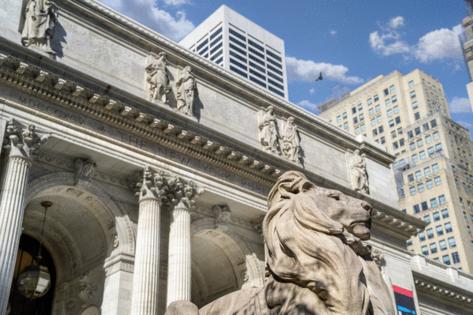Commentary: Libraries and museums make America great
Published in Op Eds
President Donald Trump proposed eliminating the Institute of Museum and Library Services (IMLS) and the entire staff was laid off on March 31. This is not the first time he suggested this as a cost-saving measure. His proposal was rejected in 2019, and it must be rejected again. The IMLS only accounts for 0.0046% of the federal budget, yet its impact is significantly greater, benefiting 1.2 billion people per year.
The IMLS supports a network of nearly 125,000 libraries and over 35,000 museums across all 50 states, in addition to the critical work they do in supporting the education and training of library and information students and professionals.
As a professor of Information Sciences, I know how important the IMLS mission is and how important their funding is to communities across the country. I see its benefits to my students every single day.
Our libraries and other cultural heritage institutions are part of what makes America special — one might even say great. School and public libraries in communities across the country make literature and information accessible, as well as offer essential public services and support, including children's literacy programs and access to tax forms, and even serve as emergency communication hubs during natural disasters.
Whether you simply have childhood memories of visiting museums on field trips or borrowing books or have made these cultural heritage institutions a part of your life in the longer term, libraries and museums offer so much to so many different people. The fact that libraries are everywhere and for everyone sets America apart from the rest of the world as exceptional in providing and prioritizing these resources.
Generations of philanthropists have understood this, with many of the wealthiest Americans in history endowing and supporting libraries and museums. From the Carnegies to the Astors, to the Gates and Waltons today, they have recognized the importance of museums and libraries, donating to provide resources that support these institutions for generations. In doing so, they cement positive legacies to their communities and the public.
They are not the only people who have recognized that giving yields dividends and esteem. Presidents who build us up are remembered as great leaders. People liked Ike and history looks favorably on President Dwight D. Eisenhower for investing in America's highway system.
As President Theodore Roosevelt said, "Do what you can, with what you have, where you are;" as a lover of nature and with the power of the presidency, he offered future generations an incomparable national parks system. What will Trump offer as a legacy?
In terms of what you can do, call or email your Senators and Representatives asking them to support IMLS and push back on this punitive cut. The American Library Association and American Alliance of Museums both offer scripts if you are not sure what to say.
What matters is that you make it clear that libraries and museums in your communities are important to you as a constituent and to the country. As a parent who shares my lifelong love of reading and curiosity about art and culture with my daughter, I want to give her and future generations a better world with more opportunities. A world where if they learn and work hard, they can succeed. Libraries and museums play a key role in preserving and realizing that American Dream.
Support for libraries means that summer reading curricula for elementary students, book clubs, and programs for retirees can continue. Support for museums and archives means that American history can be preserved and cultural heritage can be protected. Support for IMLS means that educational programs can continue to train library and information science professionals and that curricula can be modernized. Please stand up for our libraries and museums.
____
Madelyn Sanfilippo is Assistant Professor in the School of Information Sciences, a Public Voices Fellow and a member of the 24-25 OpEd Alumni Project sponsored by the University of Illinois, and an Editor for Cambridge Studies on Governing Knowledge Commons.
_____
©2025 The Fulcrum. Visit at thefulcrum.us. Distributed by Tribune Content Agency, LLC.




























































Comments